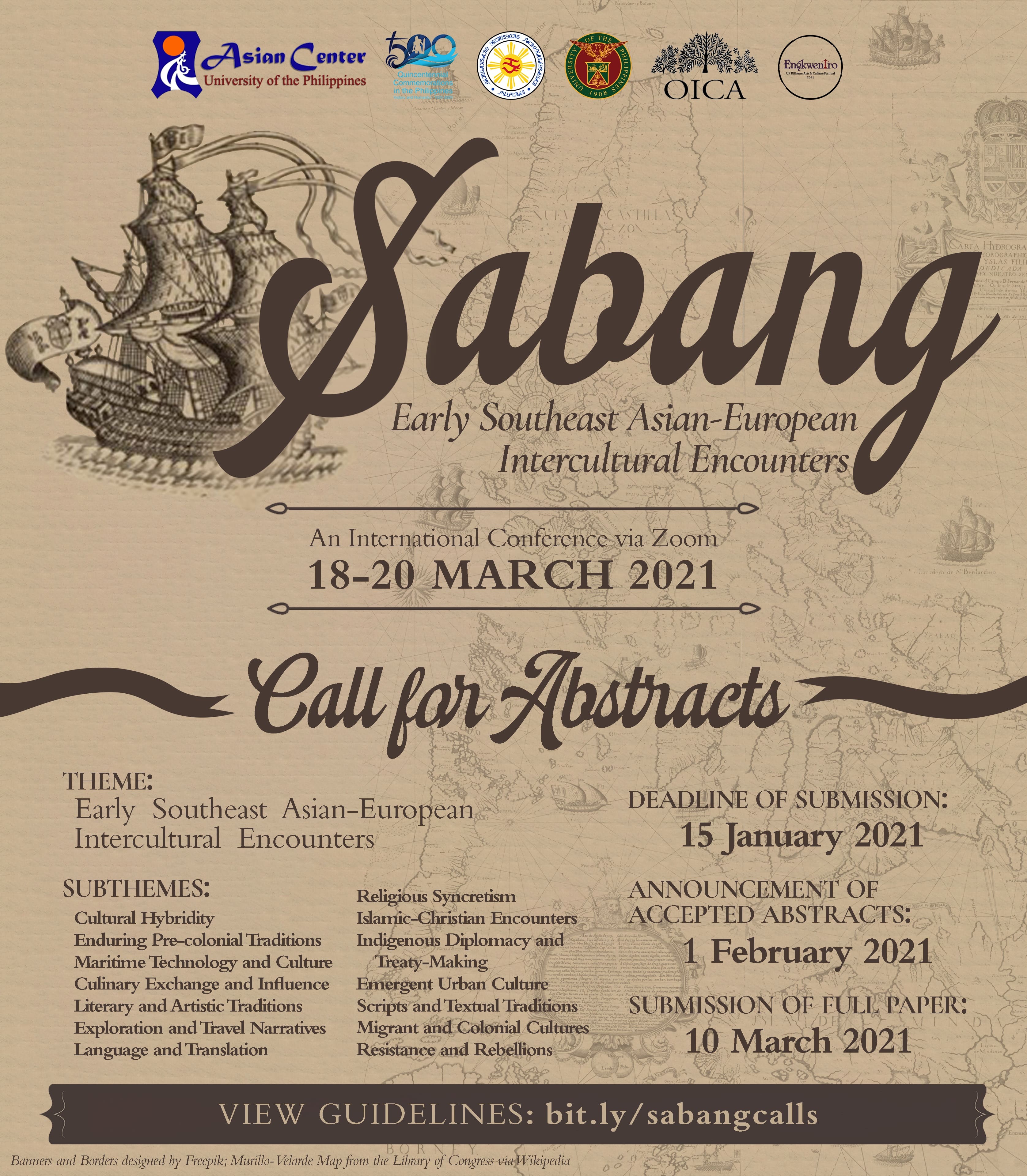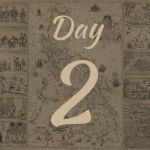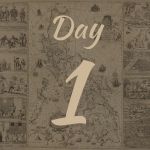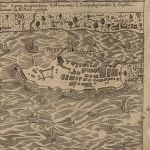Sabang
MARCH 19: PROGRAM
Click/unclick on the tabs to view/close the content. Multiple tabs can be open at the same time.
Click on the titles to pop up the abstracts. View PDF of Program and Book of Abstracts.
08:15 am • Keynote 2: The Successful ‘Portuguese’ Encounter with the Malay-Indonesian World of the 16th Century
8:15 am–9:30 am
KEYNOTE ADDRESS
The Successful ‘Portuguese’ Encounter with the Malay-Indonesian World of the 16th Century
Prof. Leonard Y. Andaya, University of Hawaii at Manoa
The encounter of the Portuguese with the Malay Indonesian world of the 16th century was characterized by the complementarity of both the “white” or European Portuguese and the “black” Portuguese or those who were of overwhelmingly local Asian descent. While the former provided the model for Portugueseness, it was the latter who succeeded in blending it with local cultures that were crucial to the success of the Portuguese enterprise. The ability of the black Portuguese to understand local perceptions of meaningful unities of bodies of water—what in the Philippines is captured in the indigenous term “sabang”—enabled the Portuguese to establish thriving international hybrid entrepots at Melaka on the Malay Peninsula, at Makassar on the southwest peninsula of Sulawesi (Celebes) and at Larantuka in eastern Indonesia in the 16th and into the 17th centuries.
Profile
Leonard Y. Andaya, PhD is Professor of Southeast Asian Historyat the University of Hawai' at Manoa. He has written on the early modern history of Malaysia, Indonesia, the southern Philippines, and southern Thailand. He is the co-author of "A History of Early Modern Southeast Asia, 1400–1830" (2015).
09:45 am • Panel 4: Race and Religion

9:45 am–11:15 am
PANEL 4: RACE and RELIGION
Chinos Indios as Sexual Deviants: Sodomy as Colonial Trope of Moral Panic in the Early Spanish Philippines
Thomas David F. Chaves, University of the Philippines Diliman • Watch on YouTube
Christianity and Racism in Post-colonial Society: White Jesus, Black Piet and Normalized Racism in Ambon, Indonesia
Hanry Harlen Tapotubun, Christian State Institution, Ambon, Indonesia
Religious Syncretism of Libad Apung Iru and the Kapampangan Pre-colonial Beliefs
James Darwin N. Lagman, Mabalacat City College, Philippines • Watch on YouTube
12:15 pm • Panel 5: Language and Communication

12:15 pm–1:45 pm
Panel 5: Language and Communication
The Meaning Behind the Action: Study on Teungku Syik Kuta Karang Hand Writing Living in Colonial Era
Dr. Fakhriati, Center for Research and Development on Religious Literature and Heritage (WITHDREW)
Zamboanga Chavacano from "Hawker Spanish" to "Slightly Spanish": The Trajectory of a Creole's Social Prestige
Jillian Loise Melchor and Dr. Miguel Blázquez, Erasmus Mundus MA Crossways in Cultural Narratives, Department of European Languages (UP Diliman)
In the (re/un)ma(r)king: Batuk (Philippine Traditional Tattoos) in the Diaspora
Lovey Ann F. Marquez, KU Leuven • Watch on YouTube
02:00 pm • Panel 6: Colonial Identities

2:00 pm–3:30 pm
PANEL 6: COLONIAL IDENTITIES
To Reward Her for This Devotion - Catholic Manipulation of the Conversion of Early-Modern Philippine Women
Steven J. Fluckiger, University of Hawai‘i at Mānoa
Melchor de Avalos and the Political Status of Tagalog Muslims
Isaac Donoso, University of Alicante, Spain • Watch on YouTube
The Imposition of the Sorbonne Method in the Formation of an Indigenous Clergy in South-East Asia: the Example of Siam in 1685
Maëlle Pennéguès, University Lumière Lyon II, France
03:45 pm • Roundtable 2: Locating Early Modern Southeast Asia

3:45 pm–5:00 pm
ROUNDTABLE 2: Locating Early Modern Southeast Asia
Discussion Questions
- Can you describe the regional and global connections made or unmade during the early modern period (c.1400-1800) in Southeast Asia? What do you think were the impact of European arrival to various states and societies in Southeast Asia during this period?
- Conversely, what do you think were the impact of early Southeast Asian-European interaction in the politics and societies in Europe, if at all?
- How important was the early period of Southeast Asian-European interaction to the later political trajectory of colonial and postcolonial states in the region?
- In your view, what are the themes, sources, approaches, geographic regions that remain frontiers for research on early modern Southeast Asia?
Participants
Joefe B. Santarita, PhD
Dean and Professor, Asian Center, University of the Philippines Diliman
Ariel C. Lopez, PhD
Assistant Professor, Asian Center, University of the Philippines Diliman
David Henley, PhD
Professor, Leiden University, Netherlands
Stefan Amirell, PhD
Professor, Linnaeus University, Sweden
08:15 am • Keynote 2: The Successful ‘Portuguese’ Encounter with the Malay-Indonesian World of the 16th Century
8:15 am–9:30 am
KEYNOTE ADDRESS
The Successful ‘Portuguese’ Encounter with the Malay-Indonesian World of the 16th Century
Prof. Leonard Y. Andaya, University of Hawaii at Manoa
The encounter of the Portuguese with the Malay Indonesian world of the 16th century was characterized by the complementarity of both the “white” or European Portuguese and the “black” Portuguese or those who were of overwhelmingly local Asian descent. While the former provided the model for Portugueseness, it was the latter who succeeded in blending it with local cultures that were crucial to the success of the Portuguese enterprise. The ability of the black Portuguese to understand local perceptions of meaningful unities of bodies of water—what in the Philippines is captured in the indigenous term “sabang”—enabled the Portuguese to establish thriving international hybrid entrepots at Melaka on the Malay Peninsula, at Makassar on the southwest peninsula of Sulawesi (Celebes) and at Larantuka in eastern Indonesia in the 16th and into the 17th centuries.
Profile
Leonard Y. Andaya, PhD is Professor of Southeast Asian Historyat the University of Hawai' at Manoa. He has written on the early modern history of Malaysia, Indonesia, the southern Philippines, and southern Thailand. He is the co-author of "A History of Early Modern Southeast Asia, 1400–1830" (2015).
09:45 am • Panel 4: Race and Religion

9:45 am–11:15 am
PANEL 4: RACE and RELIGION
Chinos Indios as Sexual Deviants: Sodomy as Colonial Trope of Moral Panic in the Early Spanish Philippines
Thomas David F. Chaves, University of the Philippines Diliman • Watch on YouTube
Christianity and Racism in Post-colonial Society: White Jesus, Black Piet and Normalized Racism in Ambon, Indonesia
Hanry Harlen Tapotubun, Christian State Institution, Ambon, Indonesia
Religious Syncretism of Libad Apung Iru and the Kapampangan Pre-colonial Beliefs
James Darwin N. Lagman, Mabalacat City College, Philippines • Watch on YouTube
12:15 pm • Panel 5: Language and Communication

12:15 pm–1:45 pm
Panel 5: Language and Communication
The Meaning Behind the Action: Study on Teungku Syik Kuta Karang Hand Writing Living in Colonial Era
Dr. Fakhriati, Center for Research and Development on Religious Literature and Heritage (WITHDREW)
Zamboanga Chavacano from "Hawker Spanish" to "Slightly Spanish": The Trajectory of a Creole's Social Prestige
Jillian Loise Melchor and Dr. Miguel Blázquez, Erasmus Mundus MA Crossways in Cultural Narratives, Department of European Languages (UP Diliman)
In the (re/un)ma(r)king: Batuk (Philippine Traditional Tattoos) in the Diaspora
Lovey Ann F. Marquez, KU Leuven • Watch on YouTube
02:00 pm • Panel 6: Colonial Identities

2:00 pm–3:30 pm
PANEL 6: COLONIAL IDENTITIES
To Reward Her for This Devotion - Catholic Manipulation of the Conversion of Early-Modern Philippine Women
Steven J. Fluckiger, University of Hawai‘i at Mānoa
Melchor de Avalos and the Political Status of Tagalog Muslims
Isaac Donoso, University of Alicante, Spain • Watch on YouTube
The Imposition of the Sorbonne Method in the Formation of an Indigenous Clergy in South-East Asia: the Example of Siam in 1685
Maëlle Pennéguès, University Lumière Lyon II, France
03:45 pm • Roundtable 2: Locating Early Modern Southeast Asia

3:45 pm–5:00 pm
ROUNDTABLE 2: Locating Early Modern Southeast Asia
Discussion Questions
- Can you describe the regional and global connections made or unmade during the early modern period (c.1400-1800) in Southeast Asia? What do you think were the impact of European arrival to various states and societies in Southeast Asia during this period?
- Conversely, what do you think were the impact of early Southeast Asian-European interaction in the politics and societies in Europe, if at all?
- How important was the early period of Southeast Asian-European interaction to the later political trajectory of colonial and postcolonial states in the region?
- In your view, what are the themes, sources, approaches, geographic regions that remain frontiers for research on early modern Southeast Asia?
Participants
Joefe B. Santarita, PhD
Dean and Professor, Asian Center, University of the Philippines Diliman
Ariel C. Lopez, PhD
Assistant Professor, Asian Center, University of the Philippines Diliman
David Henley, PhD
Professor, Leiden University, Netherlands
Stefan Amirell, PhD
Professor, Linnaeus University, Sweden
MARCH 18: PROGRAM
Click/unclick on the tabs to view/close the content. Multiple tabs can be open at the same time.
Click on the titles to pop up the abstracts. View PDF of Program and Book of Abstracts.
09:00 am • Opening Program

9:00 am–9:15 am
OPENING PROGRAM
National Anthem of the Philippines
Welcome Remarks
Fidel Nemenzo, DSc, Chancellor, University of the Philippines Diliman
Cecilia de la Paz, PhD, Director, Office for the Initiatives of Culture and the Arts, University of the Philippines Diliman
Joefe B. Santarita, PhD, Dean and Professor, Asian Center, University of the Philippines Diliman
House Rules and Conference Guidelines
09:15 am • Keynote 1: Southeast Asia and the Quincentennial Commemoration of the First Circumnavigation of the World

9:15 am–9:45 am
KEYNOTE LECTURE
Southeast Asia and the Quincentennial Commemoration of the First Circumnavigation of the World
Dr. Rene R. Escalante, Chair, National Historical Commission of the Philippines
09:45 am • Panel 1: Indigenous and Colonial Medicine

09:45 am–11:15 am
PANEL 1: INDIGENOUS and COLONIAL MEDICINE
Traditional Medicine in the Philippines and Early Southeast Asian-European Encounters
Michael L. Tan, University of the Philippines Diliman • Watch on YouTube
The Hilot of the Philippines and the Dukun Bayi of Indonesia Compared
Ma. Luisa T. Camagay, Department of History, University of the Philippines Diliman • Watch on YouTube
MSS 2996: Curiosity to A Medicinal Chest?
Mohd Affendi B. Mohd Shafri, International Islamic University Malaysia • Watch on YouTube
12:15 pm • Panel 2: Trade and Diplomacy

12:15 pm–1:45 pm
PANEL 2: TRADE AND DIPLOMACY
Addressing Southeast Asian Leadership: Diplomatic Narratives and the Ordering of Colonial Knowledge
Stephen L. Keck, Emirates Diplomatic Academy, UAE • Watch on YouTube
Friendship and Unity Among Us: The Dutch-Asian Elephant Diplomacy in the Seventeenth Century
Pichayapat Naisupap, Leiden University • Watch on YouTube
Danes in the Manila Trade, XVII-XIX Centuries
Andrés del Castillo Sánchez, El Colegio de México AC • Watch on YouTube
02:00 pm • Panel 3: Colonial Knowledge and Intermediaries

02:00 pm – 3:30 pm
PANEL 3: COLONIAL KNOWLEDGE AND INTERMEDIARIES
Re-reading 'Sucesos:' Revisiting Morga in Some Books, Texts, and Places
Rolando Talampas, University of the Philippines Diliman
Tensions of Hybridity: Native Officers as Intermediaries in Scripting Colonial Order in British Burma
Alexey Kirichenko, Institute of Asian and African Studies, Moscow State University • Watch on YouTube
Spanish Manila’s Media Anata: Groundwork for Quantitative Global Histories from Below, 1654–1687
Nicholas C. Sy, University of the Philippines Diliman
03:45 pm • Roundtable 1: History, Theories, and Prospects of Philippine Studies as a Discipline

3:45 pm–5:00 pm
ROUNDTABLE 1: History, Theories, and Prospects of Philippine Studies as a Discipline
Discussion Questions
-
What do you think is the relevance of Philippine Studies in the age of globalization, and how can we situate this relevance within the context of the ongoing global health emergency?
-
In this age of globalization, should we jettison theories, approaches, and paradigms which, rightly or wrongly, purportedly border on the essentialist and nativist problematizing of Philippine culture and society? How about foreign theories? Should they be abandoned in the name of indigeneity and nationalism?
-
What are the prospects for Philippine Studies in the digital era? What are the challenges?
-
Considering that Filipinos have become, by some accounts, a diasporic people, what is the importance of Philippine Studies with respect to Filipino migrant communities? What is the role of these migrant communities in promoting Philippine Studies?
-
How can Philippine Studies help promote inclusivity? Has it really helped address some of the social ills that have beset the country? How?
Participants
Filomeno Aguilar, Jr. PhD
Professor, Ateneo de Manila University, Philippines
Noel Christian Moratilla, PhD
Assistant Professor, Asian Center, University of the Philippines
Cristina Martinez-Juan, PhD
Executive Officer, Philippine Studies @ School of Oriental and African Studies (SOAS)
09:00 am • Opening Program

9:00 am–9:15 am
OPENING PROGRAM
National Anthem of the Philippines
Welcome Remarks
Fidel Nemenzo, DSc, Chancellor, University of the Philippines Diliman
Cecilia de la Paz, PhD, Director, Office for the Initiatives of Culture and the Arts, University of the Philippines Diliman
Joefe B. Santarita, PhD, Dean and Professor, Asian Center, University of the Philippines Diliman
House Rules and Conference Guidelines
09:15 am • Keynote 1: Southeast Asia and the Quincentennial Commemoration of the First Circumnavigation of the World

9:15 am–9:45 am
KEYNOTE LECTURE
Southeast Asia and the Quincentennial Commemoration of the First Circumnavigation of the World
Dr. Rene R. Escalante, Chair, National Historical Commission of the Philippines
09:45 am • Panel 1: Indigenous and Colonial Medicine

09:45 am–11:15 am
PANEL 1: INDIGENOUS and COLONIAL MEDICINE
Traditional Medicine in the Philippines and Early Southeast Asian-European Encounters
Michael L. Tan, University of the Philippines Diliman • Watch on YouTube
The Hilot of the Philippines and the Dukun Bayi of Indonesia Compared
Ma. Luisa T. Camagay, Department of History, University of the Philippines Diliman • Watch on YouTube
MSS 2996: Curiosity to A Medicinal Chest?
Mohd Affendi B. Mohd Shafri, International Islamic University Malaysia • Watch on YouTube
12:15 pm • Panel 2: Trade and Diplomacy

12:15 pm–1:45 pm
PANEL 2: TRADE AND DIPLOMACY
Addressing Southeast Asian Leadership: Diplomatic Narratives and the Ordering of Colonial Knowledge
Stephen L. Keck, Emirates Diplomatic Academy, UAE • Watch on YouTube
Friendship and Unity Among Us: The Dutch-Asian Elephant Diplomacy in the Seventeenth Century
Pichayapat Naisupap, Leiden University • Watch on YouTube
Danes in the Manila Trade, XVII-XIX Centuries
Andrés del Castillo Sánchez, El Colegio de México AC • Watch on YouTube
02:00 pm • Panel 3: Colonial Knowledge and Intermediaries

02:00 pm – 3:30 pm
PANEL 3: COLONIAL KNOWLEDGE AND INTERMEDIARIES
Re-reading 'Sucesos:' Revisiting Morga in Some Books, Texts, and Places
Rolando Talampas, University of the Philippines Diliman
Tensions of Hybridity: Native Officers as Intermediaries in Scripting Colonial Order in British Burma
Alexey Kirichenko, Institute of Asian and African Studies, Moscow State University • Watch on YouTube
Spanish Manila’s Media Anata: Groundwork for Quantitative Global Histories from Below, 1654–1687
Nicholas C. Sy, University of the Philippines Diliman
03:45 pm • Roundtable 1: History, Theories, and Prospects of Philippine Studies as a Discipline

3:45 pm–5:00 pm
ROUNDTABLE 1: History, Theories, and Prospects of Philippine Studies as a Discipline
Discussion Questions
-
What do you think is the relevance of Philippine Studies in the age of globalization, and how can we situate this relevance within the context of the ongoing global health emergency?
-
In this age of globalization, should we jettison theories, approaches, and paradigms which, rightly or wrongly, purportedly border on the essentialist and nativist problematizing of Philippine culture and society? How about foreign theories? Should they be abandoned in the name of indigeneity and nationalism?
-
What are the prospects for Philippine Studies in the digital era? What are the challenges?
-
Considering that Filipinos have become, by some accounts, a diasporic people, what is the importance of Philippine Studies with respect to Filipino migrant communities? What is the role of these migrant communities in promoting Philippine Studies?
-
How can Philippine Studies help promote inclusivity? Has it really helped address some of the social ills that have beset the country? How?
-
Participants
Filomeno Aguilar, Jr. PhD
Professor, Ateneo de Manila University, Philippines
Noel Christian Moratilla, PhD
Assistant Professor, Asian Center, University of the Philippines
Cristina Martinez-Juan, PhD
Executive Officer, Philippine Studies @ School of Oriental and African Studies (SOAS)
MEET OUR KEYNOTE SPEAKERS
March 18: Dr. Rene R. Escalante
Southeast Asia and the Quincentennial Commemoration of the First Circumnavigation of the World
Date and Time
0815 am, 18 March 2021 0915 am – 0945 am (No Q&A session)
Profile
Rene R. Escalante, PhD is the Executive Director of the National Quincentennial Committee, which aims to commemorate the 500th anniversary of the "Victory at Mactan (27 April 2021) and...of the Philippine part in the first circumnavigation of the world."
March 19: Dr. Leonard Andaya
The ‘Portuguese’ Encounter with the Malay-Indonesian World of the 16th Century
Date and Time
08:15 am, 19 March 2021
Abstract
The encounter of the Portuguese with the Malay Indonesian world of the 16th century was characterized by the complementarity of both the “white” or European Portuguese and the “black” Portuguese or those who were of overwhelmingly local Asian descent. While the former provided the model for Portugueseness, it was the latter who succeeded in blending it with local cultures that were crucial to the success of the Portuguese enterprise. The ability of the black Portuguese to understand local perceptions of meaningful unities of bodies of water—what in the Philippines is captured in the indigenous term “sabang”—enabled the Portuguese to establish thriving international hybrid entrepots at Melaka on the Malay Peninsula, at Makassar on the southwest peninsula of Sulawesi (Celebes) and at Larantuka in eastern Indonesia in the 16th and into the 17th centuries.
Profile
Leonard Y. Andaya, PhD is Professor of Southeast Asian Historyat the University of Hawai' at Manoa. He has written on the early modern history of Malaysia, Indonesia, the southern Philippines, and southern Thailand. He is the co-author of "A History of Early Modern Southeast Asia, 1400–1830" (2015)
March 20: Dr. Birgit Tremml-Werner
Shifting the Entrepot Paradigm: Local Agents and Indigenous Voices in the Making of Manila's Global Connections, ca. 16th to 18th Century
Time and Date
02:00 pm, 20 March 2021
Abstract
In recent decades, a rich body of scholarship has demonstrated that Manila was more than just a trans-shipment port. Studies on far-reaching intra-Asian, Austronesian, and trans-Pacific connections have posed a challenge to narratives of both galleon-centricity and irrational colonial governance. Yet, there continues to exist an overemphasis on actors and processes reaching the Philippines from abroad, while both indigenous agency and colonial policies are rendered secondary to the course of events. However, from the sixteenth century onwards, a long list of ‘connectors’ including among many others ‘mestizo de sangley’-interpreters, provincial parish priests, colonial officials, indigenous chiefs, localized foreign residents, indigenous allies, beatas, and Spanish women, were at the heart of local and global projects. Zooming in on such local agents opens up new vistas for a nuanced global history of a connected archipelago
Profile
Birgit Tremml-Werner is a lecturer at Linnaeus University in Sweden. She has a Mag. phil. and Dr. phil. degrees in History (with a minor in Japanese Studies) from the University of Vienna. She is the author of Spain, China, and Japan in Manila, 1571-1644: Local Comparisons, Global Connections (2015).
All photos were taken from each speaker's respective profile pages







